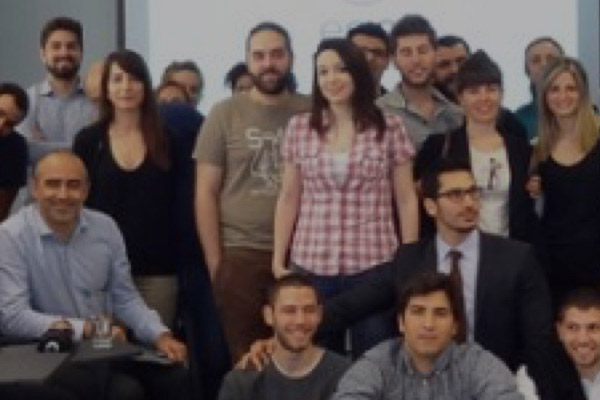In the framework of the initiative “Eurobank Forum - Business Series” Eurobank EFG organized an event with Mr Pavlos Sklavounos, Professor at MIT, as Keynote Speaker. Prof. Sklavounos presented the technological developments, investment opportunities, current practices and perspectives in the field of wind energy in land and sea.
Welcoming Mr Sklavounos, Eurobank's CEO, Mr Nicholaos Nanopoulos stressed that “the new growth orientation of the Greek economy must promote openness and be based on knowledge, innovation and the application of new ideas and standards. In such a model, the most innovative sections of the academic community should enjoy an open dialogue and collaboration with the production sector and the country's entrepreneurial and creative forces. It is a cooperation prospect we could call a win-win situation. Another element that should mobilize us is the concept of sustainable growth, promoted through investments in wind energy. And for a country that is so burdened environmentally, with such a huge current account deficit, which is further enlarged through the import of carbohydrates, the issue of wind energy is of especial interest.”
In his presentation, Mr Sklavounos emphasized inter alia that “The wind energy sector is growing rapidly worldwide due to the competitive cost of wind power relative to that generated by thermal plants and the rising cost of carbon emissions. Offshore wind energy is the next frontier. Floating wind turbine technologies developed at MIT allow the support of multi-megawatt turbines for deployment in water depths from tens to hundreds of meters and at distances from shore that mitigate visual impact. The prospects for the development of the offshore wind energy resources of Greece look very promising due to the high wind speeds in the Aegean and the small wave heights that allow the design of inexpensive floating wind turbine systems.
Investments in wind farms may be carried out using Project Finance as in the crude oil and power sectors. A 1 GW of rated wind power capacity is on an energy equivalent basis analogous to a 100 million barrel crude oil reservoir with the wind resource available just 100 meters above sea level as opposed to thousands of meters below it, as happens with crude oil. Wind power projects require the establishment of a partnership between the government, banks, sponsors and investors participating as joint stakeholders in the Project Company structured with a levered capital structure and financial claims priced to reflect the risk tolerance of each stakeholder. They include floating rate bank loans, fixed rate bonds for institutional investors and pension funds, warrants and convertible bonds, fixed income and energy derivatives and equity offering high rates of return to project sponsors and private investors”.
The event was attended by representatives of the political and business world, academics, researchers and customers of the Bank.




